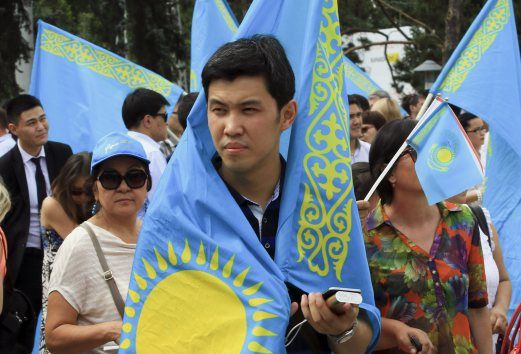 Within minutes of the announcement that Almaty's bid to host the 2022 Winter Olympics had failed, it was almost as if it had never happened.
Within minutes of the announcement that Almaty's bid to host the 2022 Winter Olympics had failed, it was almost as if it had never happened.
The crowd of about 1,000 people which had gathered on a square in the Kazakh city to hear Friday's result started to disperse as soon as International Olympic Committee President Thomas Bach revealed that the games would go to Beijing. “It's very sad that we didn't win.
We had been hoping for (the Olympics) because they would raise the prestige of the city and the country," said Murat, a 26-year-old worker in the city administration who attended the event. Like many others in Almaty, Murat refused to give his surname because he works in a government job.
The muted reaction in Almaty was in contrast to the surprise at the vote in Malaysia, where Beijing had been widely expected to win easily but only prevailed by the narrow margin of 44-40 in the closest IOC vote in eight years. For the Kazakh government, bidding for the Olympics was a matter of putting the country on the map globally and distinguishing it from other post-Soviet nations in Central Asia, known as the “stans." “By bidding for the Winter Games we showed the world the amazing progress that Kazakhstan has made since its independence.
This alone is a major victory for our country," Andrei Kryukov, the deputy head of the bid, said in a statement after Beijing's victory. Under the slogan “Keeping it Real," the bid had concentrated on Almaty's abundant natural snowfall - a weakness for Beijing - and the city's compactness, with all venues within a 30-kilometer (18-mile) radius. In a country where opposition voices are marginalized and politics is dominated by longtime president Nursultan Nazarbayev, who won almost 98 percent of the vote when he was re-elected in April, the Kazakh government's decision to bid for the games failed to attract passionate support from many citizens.
On the city square in Almaty, enthusiasm was largely lacking ahead of the vote, despite a DJ playing dance music aimed at the many schoolchildren and students in attendance. When Beijing was announced as victor, the DJ wound up the event. There were no speeches by officials.
Many in the crowd told The Associated Press that they were students or state employees who had been instructed to attend by officials instead of going to school or work, and some criticized Almaty's bid. Karligash, a 34-year-old railway employee who refused to give her surname because she holds a government job, said Almaty had simply not been ready to host the Olympics. “Beijing had the better presentation and Almaty looked stingy and parochial. I was really disappointed," she said, adding that government spending cuts made it the wrong time for Kazakhstan to bid for the games. “We're cutting back on budget funds and we need a lot of work to hold events of that scale."
Finances had been singled out as a potential weakness in Almaty's bid, with an IOC evaluation commission report warning the budget could be affected by economic shocks. Over the last year, a drop in the price of oil, Kazakhstan's main export, has led the government to cut spending. Both bids faced repeated criticism over human rights. Few opposition voices remain in Kazakhstan, where many critics of the government have chosen to leave the country after facing state harassment.
There was no immediate word on whether Almaty would consider bidding again after coming so close to beating Beijing. The city also bid for the 2014 Olympics, but was eliminated in the preliminary stages.
Source: AP.com
 В Атырау -10
В Атырау -10